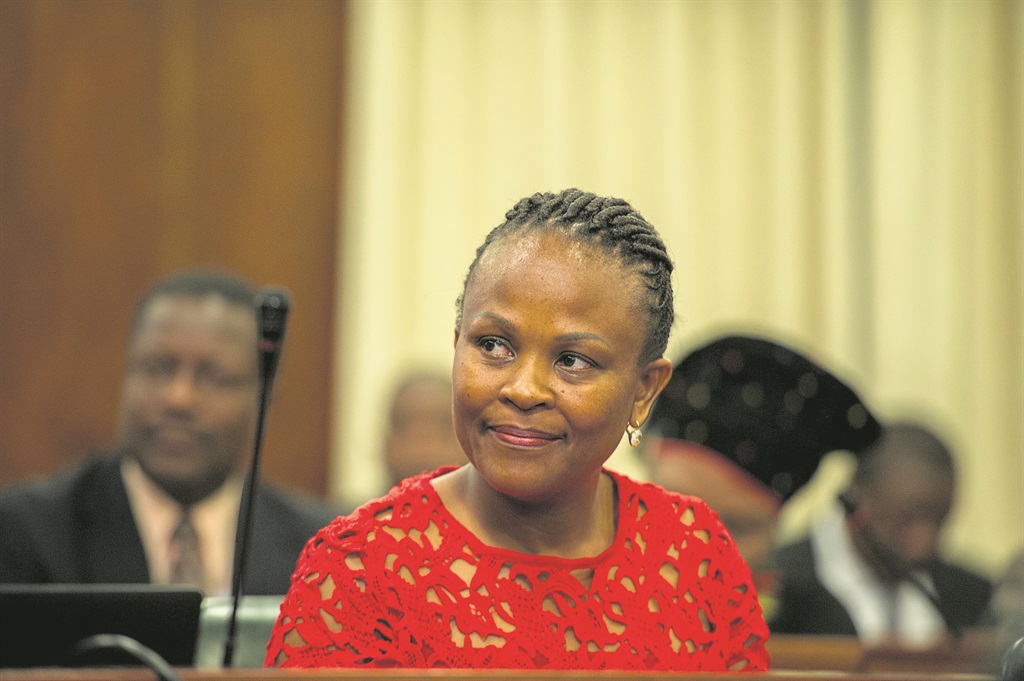
The imperative to restorate the integrity of key state institutions dictates that by the end of this year at the very least, cases must have been brought to court and convictions obtained, writes Serjeant at the Bar.
Two interviews were conducted recently which prompted this column. David Lewis, the admirable head of the important NGO Corruption Watch spoke of the annual corruption report which his organisation produces. He noted that, unlike in previous years, some positive change had occurred, in particular the appointment of people of ability and integrity to the head of two key institutions, the NPA and SARS.
Lewis suggested that Shamila Batohi of the NPA and Edward Kieswetter of SARS should be meeting. The Al Capone strategy of holding crooks to account by way of tax evasion prosecutions is always an effective strategy, once the two organisations, as is now the case, are headed by dedicated people.
Lewis noted that those who were (are) involved in corrupt activities are by definition tax evaders as they are unlikely to have disclosed their nefarious activities to SARS. He warned that the public needed to see action being taken to deal with the scourge of corruption and this was particularly the case with so much low hanging fruit available to the law enforcement agencies.
Given the almost daily revelations of the degradation to governance over the past decade in particular, the imperative for the restoration of the integrity and legitimacy of these institutions dictates that by the end of this year at the very least, cases must have been brought to court and hopefully convictions obtained.
A second discussion involved an economist who contended that, unless the investor community saw the reversal of the widespread practice of corruption and the end of the apparent immunity from any investigation/prosecution enjoyed by high profile politically connected individuals, the expectation would continue that no new dawn would emerge, and that no change would take place of any materiality to break decisively with the current political deadlock. This was imperative if investor expectations are to change which is necessary for the inducement of the investment to ensure that economic growth is higher than population growth, an essential condition for the achievement of a better life for millions who continue to suffer the indignity of grinding poverty.
Inaction threatens economic growth
In short, the present inaction outside of commissions of inquiry threaten not only democratic politics but also inclusive economic growth. In the case of SARS, a number of independent people including chair of the Davis Tax Commission Judge Dennis Davis have expressed the view that under Kieswetter, SARS can and will be turned around into a formidable tax collecting agency. By contrast there is less confidence with regard to the NPA.
For starters, it must be hugely difficult for Batohi to know whom to trust, such was the scale of the capture of this crucial institution over the past decade. In addition, there is a clear lack of forensic ability to prosecute complex financial crimes. And finally, as if that was not enough of a challenge, there is a possibility of the return of advocate Nomgcobo Jiba and Lawrence Mrwebi to active duty at the NPA.
Last week this publication reported on the desire of Batohi to appoint a "heavy hitter" to the position of head of the newly created investigative directorate which is to focus on crimes that flow from state capture. Names were mooted, all sound and sensible but one is surely excused from feeling that none of those mentioned would put the fear of the Almighty into the hearts, for example, of the Guptas in the highly unlikely event that they stand trial or the Watsons or Markus Jooste. And that is what the public is entitled to demand: an experienced litigator who understands the intricacies of litigation strategy, accounting, finance, company law and tax evasion.
Surely the time has come to tap someone from private practice on the shoulder and ensure such a person takes on this job for at least three years.
Public Protector provides little reason for optimism
Sadly, the other key institution in this area, the Public Protector, holds little ground for optimism. Her office has managed in a short time to prompt some 20 court reviews of her recommendations and she is also the recipient of a punitive cost order, albeit that this awaits a final determination by the Constitutional Court. But like British Prime Minister Theresa May, she is determined to be determined.
Publicity about an increase in complaints to be investigated by the office of the Public Protector, her own complaint about lack of adequate resources and a wall to wall set of accusations of mal administration/corruption of the public purse notwithstanding, she decides within this troubling context to institute an investigation into the so-called rogue unit at SARS.
Leave aside the fact that the NPA finally decided that there was no criminal case to be brought in this connection or that a commission headed by a hugely experienced judge assisted by the ex-chair of a tax commission commissioned by President Mandela found not only that there was no merit in these allegations but that any revenue service would and does have a similar kind of unit to deal with the tax consequences of contraband, the Public Protector considers this to be a priority for her office.
As the office of the Public Protector uses public money perhaps she should attempt to explain why this particular issue which was previously employed by the Zuma regime to attack Pravin Gordhan enjoys such priority in her office.
On all available evidence therefore much still needs to be done if the country is to turn the corner and become the kind of accountable and transparent state promised in the constitutional text.
- Serjeant at the Bar is a senior legal practitioner with a special interest in constitutional law.
Disclaimer: News24 encourages freedom of speech and the expression of diverse views. The views of columnists published on News24 are therefore their own and do not necessarily represent the views of News24.




 Publications
Publications
 Partners
Partners























